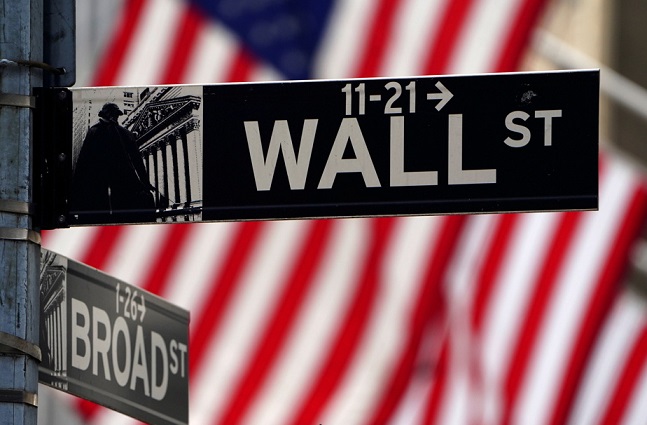The New York Stock Exchange finished sharply higher on Friday, at the end of a roller-coaster market week, oscillating between fears of too high inflation in the United States and optimism on the health front.
The Dow Jones Industrial Average rose 1.06% to 34,382.13 points.
The NASDAQ climbed 2.32% to 13,429.98 points and the broader S&P 500 Index gained 1.49% to 4,173.81 points.
Over the week as a whole, the major indices lost ground, however: the Dow Jones fell 1.14%, the NASDAQ 2.34% and the S&P 500 fell 1.39%.
The weekly drop is explained by three consecutive sessions in the red from Monday to Wednesday as signs of a sharp rise in prices in the United States have multiplied.
Highly anticipated by the market, the consumer price index (CPI), released on Wednesday by the Labor Department, showed a rise in consumer prices of 4.2% over one year and 0.6% over one month, exceeding market expectations.
This acceleration in the rate of inflation raises questions about a possible adjustment of the Federal Reserve’s (Fed) ultra-accommodative monetary policy.
“The main question for the market, if prices continue to rise, is whether core inflation (without volatile energy and food prices, Editor’s note) is going to be temporary as assured by the Fed, ”says Quincy Krosby of Prudential Financial. “Because the main concern is that it will set in over time. ”
For now, the Fed has promised not to touch its low key rates (between 0% and 0.25%) or its asset buyback program, which aims to support the recovery in economic activity.
Wall Street rebounded over the weekend, however, driven in particular by optimism on the health front after the US health authorities’ decision to lift the requirement to wear masks indoors for people vaccinated against COVID-19.
“This suggests that more young people are getting vaccinated, which is good for the economy,” says Krosby.
Among the values of the day, Disney, a member of the Dow Jones, fell 2.60%. Disney +, the entertainment giant’s streaming platform, posted quarterly growth in subscriber numbers on Thursday that Wall Street rated as disappointing.
Airbnb took 4.01%. The private rental housing platform suffered a net loss of $ 1.2 billion between January and March, but has expressed confidence that growth will return for the travel industry.
Cryptocurrency exchange Coinbase, which entered Wall Street in April, fell 2.54% despite a jump in first quarter revenue and net income from the previous quarter.
Doordash jumped 22.15%. The meal delivery service has exceeded analysts’ expectations and raised its forecast for the year.
On the bond market, the 10-year rate on US debt fell to 1.63%, against 1.66% the night before.
Toronto ends up
The Toronto Stock Exchange’s S & P / TSX Composite Index gained 230.88 points to close at 19,366.69 points, falling within one point of its all-time high last Friday.
US markets have done a little worse than the Toronto floor since Monday, falling between 1.1% and 2.3% for the week as a whole. But that’s not bad considering that three of the four markets closed at record highs last Friday, Petursson noted.
Financials stocks particularly stood out this week, as bank stocks benefited from steeper yield curves, while energy and materials groups continued to fuel markets, as they have since September. beginning of the year, he continued.
Ten of the eleven sectors on the TSX advanced on Friday, particularly energy, health care, financials and materials.
The energy sector gained 2.7%, while the health and financial sectors advanced 1.9% and 1.3% respectively.
In the currency market, the Canadian dollar traded at an average of 82.58 cents US, up from 82.30 US cents the previous day.

